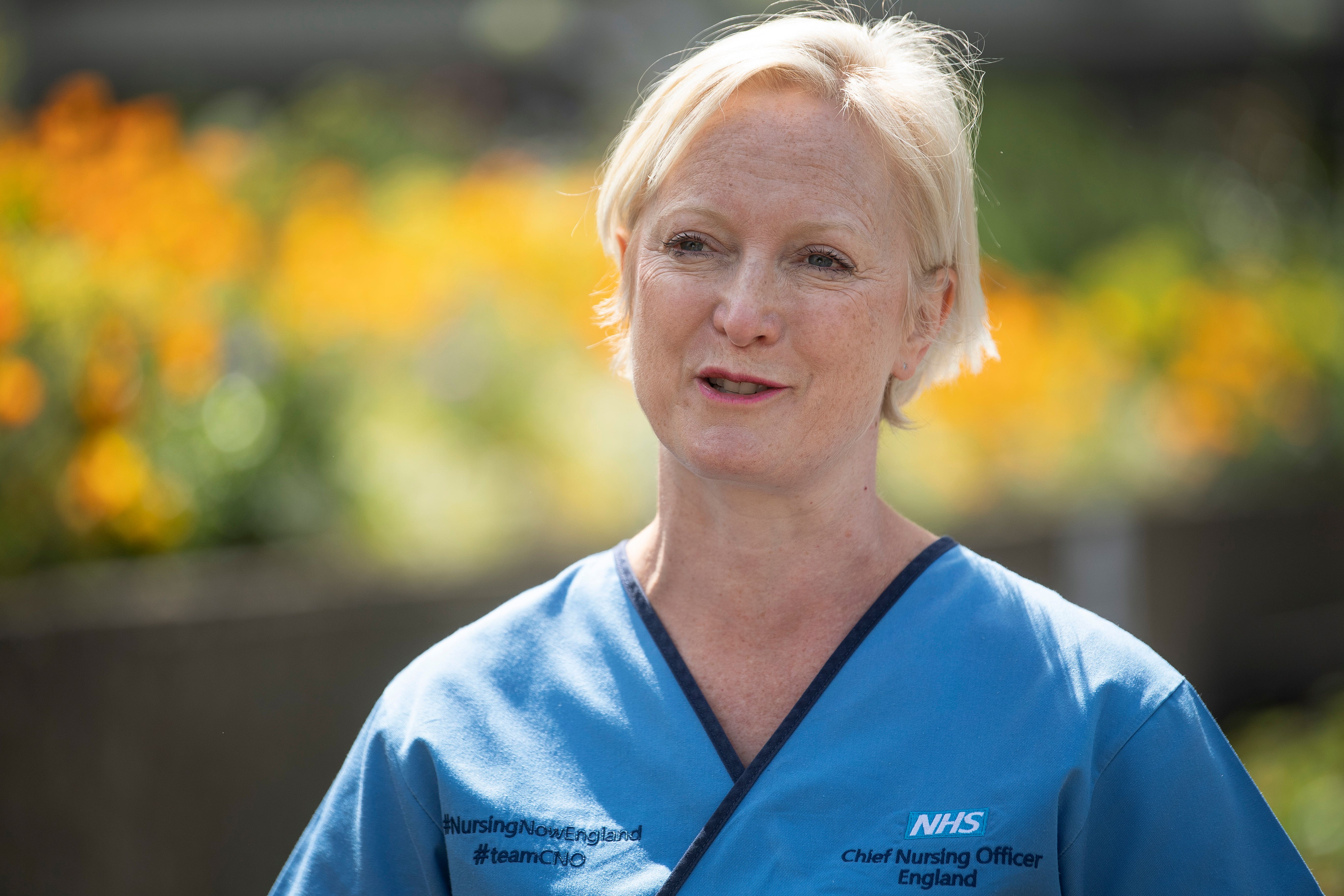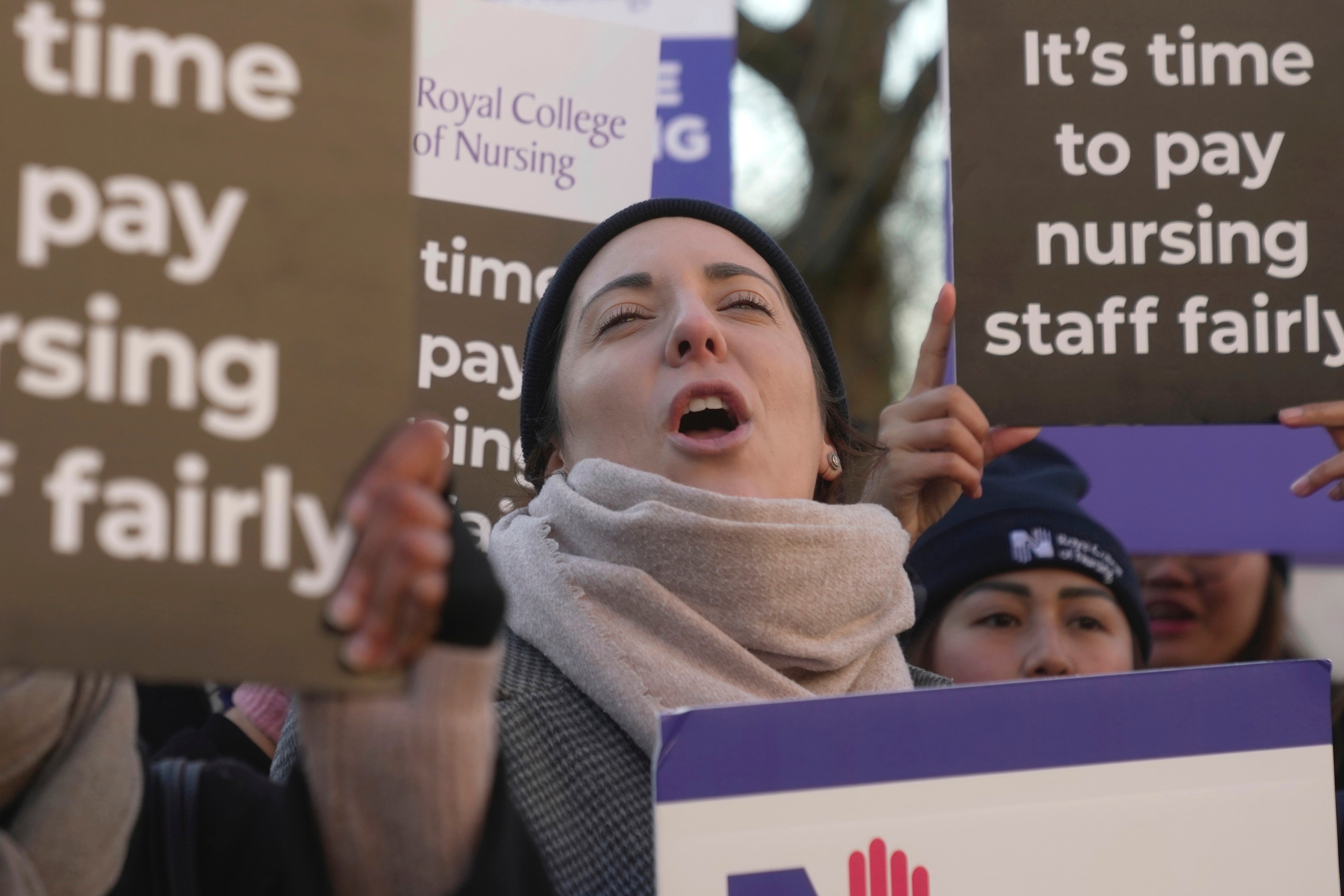
The government has been told it cannot sit back and put patient safety on the line in its stance to staff pay, amid warnings healthcare strikes will escalate.
NHS trusts faced the first day of strike action on Thursday as thousands of nurses walked out, driving tens of thousands of appointment cancellations and service closures.
The next set of actions will take place next week as nurses strike again and follow this ambulance staff across 10 ambulance trusts. However, the Royal College of Nursing’s chief Pat Cullen has said there was a “strong possibility” of further strikes in January.
NHS leaders and Conservative politicians have urged the government to open negotiations amid fears strikes will be worse in January with unions potentially coordinating during what is traditionally the most difficult month for the NHS.
Despite the concerns over upcoming ambulance strikes and further action from nurses in January, the government has held its line as Downing Street has said there are “no plans” to look again at the pay deal for nurses.
Pressed on whether he is willing to discuss pay with the RCN, health secretary Steve Barclay said: “We’ve been clear that we have an independent process and that is the process we followed.”
He has repeatedly said the government is sticking to the recommendations of the independent pay review body, which said nurses should get a pay rise of around £1,400.
The RCN has been calling for a pay rise at 5 per cent above inflation, though it has indicated it would accept a lower offer.
Matthew Taylor, chief executive for NHS Confederation, which represents NHS trusts across the country, said: “No health leader wanted to be in this situation and the strikes could have been avoided had the government attempted to find more common ground with the RCN on pay. The government cannot just sit back and let future strikes happen when patient care is on the line.”
He said he was concerned this was “just the start” and that strikes being planned for January could be more severe and coordinated across the different unions.”
On Twitter, Mr Taylor said: “Today’s strike is hard enough but they are already looking ahead to the paramedics’ strike next week with trepidation. If only category 1 ambulance calls are exempt, one member told us this will mean 80 per cent of their demand won’t be covered.”

Dame Ruth May, the NHS’s chief nurse, joined nurses outside St Thomas’s Hospital in central London and later posted a video to Twitter saying she wants to see a resolution to the row over pay.
According to The Times, she said on the picket line she supports striking nurses – and ministers must reach an “urgent resolution” with the RCN.
Conservative MP Steve Brine also told the BBC’s World At One programme: “I think the way out is to protect the integrity of the process, go back and ask them to look again.
“Everyone needs to cool it and I think sending it back to the pay review body to have a look would be a sensible answer.”
Former Conservative Party chairman, Sir Jake Berry, also urged the Government to “improve its offer” on pay.
Outside Aintree University Hospital in Liverpool, many nurses held placards bearing slogans such as “You clapped for us, now act for us” and “If nurses are out here, there’s something wrong in there”.
One nurse, Pamela Jones, told PA: “I’m striking today because I’ve been nursing for 32 years; within those 32 years the changes have been astronomical.
“The public need to understand the pressures that everyone’s under. You’ve only got to come into A&E and see the queues, there’s no beds.
“We want to save our NHS, we don’t want it to go, and I think this is the way forward, it’s the only way we can put our point across.”

According to the Health Service Journal, NHS England’s chief for planned care, Sir Jim Mackey, said during an event at the King’s Fund on Thursday, “The ambulance strike is a completely different order of magnitude of risk [than the nurses’ strike]. I think that’s the main thing people are worried about because of the complexity and fragility of urgent care.”
“If we were to give [national guidance on what elective activity to cancel] today, the only guidance we could give would be to cancel absolutely everything, and that’s really not going to help anybody…”
Around 70,000 appointments, procedures and surgeries will be lost in England and thousands more in Wales have been cancelled due to the strikes, according to minister Maria Caulfield.
NHS hospital leaders speaking with The Independent said they have been able to manage the first day of strikes without major safety issues.
Dr Adrian Boyle, president of the Royal College of Nurses said the disruption after the event is often worse than the actual event, amid concerns A&Es will experience an increase in demand in the days to come.
Professor Tim Orchard, chief executive of Imperial College Healthcare NHS Trust, warned that some surgery would have to be postponed for as long as six weeks.
He said: “Working closely with the RCN local strike committee, our teams have developed detailed contingency plans. Our A&E and inpatient services will be fully operational and we expect to be able to continue with our time-critical cancer care.
“But we have had to postpone much of our other planned care or, where possible, move to virtual appointments. We expect that patients who have had their appointment or surgery postponed will be able to be rescheduled for the end of January.
Meanwhile, minor injury units in parts of Worcestershire have been closed due to staffing pressures amid the nursing strikes.
NHS Herefordshire and Worcestershire Health and Care Trust said the Malvern and Tenbury units, which deal with sprains, strains, small cuts and burns, will be shut on Thursday.







